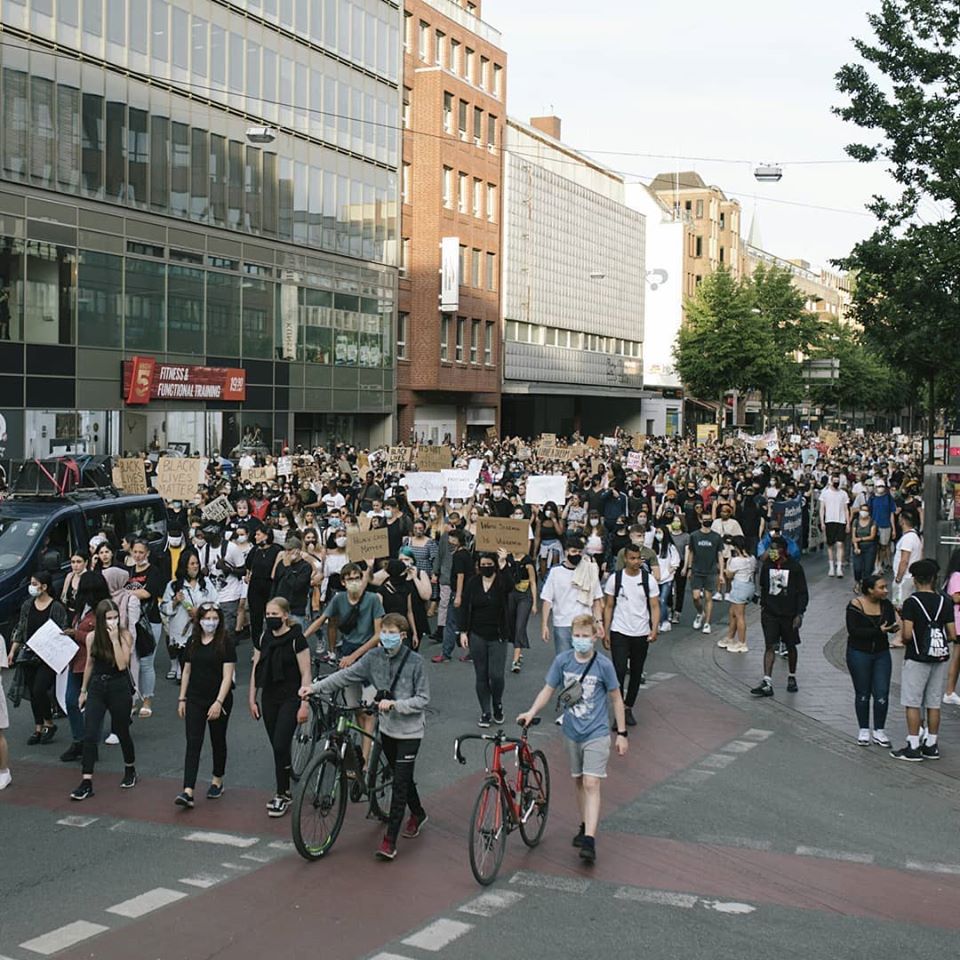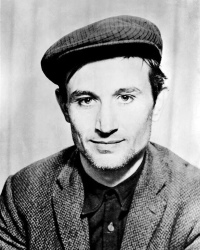Dokumente
Dokumente
- Details
- Category: Gonzalo
Con motivo de los últimos desarrollos en cuanto a la situación del Presidente Gonzalo publicamos un importante Resolución del CC de PCP de diciembre 1992.
¡Proletarios de todos los países, uníos!
RESOLUCIÓN
El Comité Central del Partido Comunista del Perú saluda fervorosamente a nuestro querido, heroico y magistral jefe, el Presidente Gonzalo, el más grande marxista-leninista-maoísta viviente, gran estratega político y militar, filósofo, maestro de comunistas, centro de unificación partidaria, quien aplicando creadoramente el marxismo-leninismo-maoísmo a las condiciones concretas de la revolución peruana ha generado el Pensamiento Gonzalo, garantía de triunfo de la revolución.
El Comité Central del PCP se reafirma en su sujeción plena, consciente e incondicional a la jefatura única del Presidente Gonzalo, y a todo el sistema de dirección partidaria.
El Comité Central del PCP se reafirma en el histórico reconocimiento del 1er Congreso del Partido:
„Los miembros del Congreso expresamos nuestra reconocimiento al Presidente Gonzalo como continuador de Marx, Lenin y el Presidente Mao Tsetung, quien ha garantizado la concreción del principal hito histórico partidario. Así como nuestro jubiloso saludo comunista por haber iniciado y dirigir la contraofensiva marxista-leninista-maoísta, pensamiento gonzalo que aplastará la nueva ofensiva contrarrevolucionaria encabezada por Gorbachov y Teng y, desarrollándola imponer el maoísmo como nueva desarrollo del marxismo en servicio de la revolución proletaria mundial hasta el comunismo“ (junio de 1989)
Hoy que nuestro querido jefe enfrenta difíciles situaciones, derivadas de un nefasto accidente de trabajo, asumimos firmemente su valiente y decidido llamamiento del 24 de setiembre, desde prisión:
„Vivimos momentos históricos, cada uno debe estar claro de que es así. No nos engañemos. ¡Debemos en estos momentos poner en tensión todas las fuerzas, para enfrentar las dificultades y seguir cumpliendo con nuestras tareas, y conquistar las metas, los éxitos, la victoria! ¡Eso hay que hacer!“
Y eso es lo que viene haciendo nuestro Partido dirigiendo la incontenible guerra popular para Conquistar el Poder en todo el país, desarrollando el equilibrio estratégico, creando más Nuevo Poder, organizando hoy el Frente Popular de Liberación, aplicando con resolución los acuerdos del glorioso, histórico y trascendental III Pleno del Comité Central. Nos encontramos en plena aplicación del IV Plan de Desarrollo Estratégico de la Guerra Popular para Conquistar el Poder y del VI Plan militar: „¡Construir la Conquistar del Poder!“, con su Primera Campaña „¡En Defensa de la Jefatura, Contra la dictadura genocida!“, plasmado contundentes acciones armadas que estremecen de pavor al imperialismo, a la gran burguesía y a los terratenientes, así como sus lacayos revisionistas y oportunistas, y a todos sus plumíferos a sueldo, quienes en vano tratan de ocultar la palmaria realidad.
Repudiamos enérgicamente los rastreros infundios del genocida vendepatria y de toda la recua de perros carniceros defensores del viejo orden que tratan de echar barro al jefe del Partido y la revolución. El Presidente Gonzalo es el más grandioso ejemplo de lo que es un comunista y desde el inicio mismo de la invencible guerra popular pasó a la clandestinidad y se mantuvo en ella durante más de doce años, en heroica, tenaz y denodada brega, dirigiendo paso a paso la revolución; es en esas circunstancias que se produjo su detención el 12 de setiembre por los soplones de la „dincote“; pero, debe saberlo nuestro pueblo, tal detención se produjo con el asesoramiento y dirección del imperialismo yanqui a través de la siniestra cia (Central de „inteligencia“ americana); imperialismo que desembozadamente impulsa la llamada „guerra de baja intensidad“ en nuestro país.
Advertimos resueltamente al genocida vendepatria de Fujimori, a las cobardes y genocidas fuerzas armadas que lo manejan, especialistas en derrotas y expertos en cebarse con las masas desarmadas, a la jerarquía eclesiástica, jueces y burócratas que avalan el genocidio, y a su gran titiritero, el imperialismo principalmente yanqui, que respondan por la vida y la salud de nuestro Jefe pues, de lo contrario, de ocurrirse algo pagarán con sus vidas y las de todos sus congéneres, cueste lo que cueste. Y exigimos el respeto de los derechos que atañen e loa prisioneros de guerra, demandando el pronunciamiento de los organismos internacionales a quienes supuestamente les compete velar por el cumplimiento de elementales convenios y normas jurídicas que la propia reacción ha establecido y dicen respetar.
Alertamos a nuestro heroico pueblo para que no se deje confundir por las negras patrañas montadas por la dictadura genocida, que aplica la „guerra de baja intensidad“ dictada por su amo el imperialismo yanqui. Por eso condenamos esa llamada „ley de arrepentimiento“ decretada por los genocidas y en base a la cual han montado toda esa farsa ridícula que pregona falsamente „el arrepentimiento de centenares de subversivos“; así como supuestas „detenciones masivas de senderistas“ o el „bombardeo y arrasamiento de fortines senderistas en Ayacucho (Vizcatan, Waripata), Huallaga, etc.“ Nos reafirmamos en que la guerra popular, marxista-leninista-maoísta, pensamiento gonzalo es invencible e inexorablemente conquistará la victoria; y eso no depende de la voluntad de un advenedizo títere que ni siquiera está seguro de terminar su „mandato“, tampoco depende de la voluntad de las fuerzas armadas genocidas ni de la del imperialismo yanqui que tantas veces fue derrotado por la misma guerra popular. Pero lo que quieren encubrir con sus patrañas es la gravísima situación en que se encuentra el viejo estado que no tiene salida; lo que encubren es la deserción de decenas de soldados que son usados como carne de cañón y las centenares da bajas que le viene propinando el Ejército Popular de Liberación; lo que tratan de encubrir son las agudas contradicciones que hoy atizan entre las dos facciones de la gran burguesía y que se reflejan en el seno de sus podridas fuerzas armadas.
Agradecemos y reconocemos la solidaridad y el apoyo del proletariado internacional, Movimiento Revolucionario Internacionalista, de los Partidos Comunistas, de las Organizaciones Populares, de los pueblos del mundo, quienes han elevado su voz de protesta y su puño vigoroso por la defensa del Presidente Gonzalo, a través de pronunciamientos, mítines, movilizaciones y acciones armadas. Hacemos un llamamiento a seguir desarrollando estas tareas pero aunadas a la campaña ¡Viva el Maoísmo!
En el III Pleno del Comité Central el Presidente Gonzalo dijo:
„El maoísmo encarnándose en los pueblos del mundo marcha a comandar la nueva gran ola de la Revolución Proletaria Mundial“.
Y en el discurso del 24 de setiembre nos planteó:
„¿Qué necesitamos? necesitamos que el maoísmo sea encarnado y lo está siendo, y que pase generado partidos comunistas a manejar, a dirigir esa gran ola de la Revolución Proletaria Mundial que se nos viene“. „En el próximo año se cumplen cien años del nacimiento del Presidente Mao. ¡Hay que celebrar los cien años! y lo estamos organizando con los partidos comunistas“.
Eso hemos comenzado a hacer porque el maoísmo es la tercera, nueva y superior etapa de la ideología del proletariado internacional y es lo decisivo.
Finalmente nos reafirmamos en la inconmovible decisión de dar la vida por el Presidente Gonzalo, por el Partido y la Revolución. Nos reafirmamos en nuestra firme resolución de desarrollar la guerra popular para Conquistar el Poder en todo el país, aplicando fiel, tenaz y vigorosamente nuestra inmarcesible y todopoderosa ideología, el marxismo-leninismo-maoísmo, pensamiento gonzalo.
¡VIVA EL MAOÍSMO!
¡VIVA EL PRESIDENTE GONZALO!
¡DEFENDER LA VIDA DEL PRESIDENTE GONZALO!
¡VIVA EL MARXISMO-LENINISMO-MAOÍSMO, PENSAMIENTO GONZALO!
¡DESARROLLAR EL EQUILIBRO ESTRATÉGICO!
Comité Central
Partido Comunista del Perú
Perú, diciembre del 92.
- Details
- Category: Gonzalo
On the occasion of the latest developments regarding the situation of Chairman Gonzalo we published an important Resolution of the CC of CPP of December 1992.
Proletarians off all countries, unite!
RESOLUTION OF THE CENTRAL COMMITTEE
The Central Committee of the Communist Party of Peru fervently greets our beloved, heroic and magisterial leader, Chairman Gonzalo; the greatest living Marxist-Leninist-Maoist, great political and military strategist, philosopher, teacher of communists, center of party unification, who creatively applying Marxism-Leninism-Maoism to the concrete conditions of the Peruvian revolution has generated Gonzalo Thought, guarantee of the revolutions triumph.
The Central Committee of the PCP reaffirms itself in its plain, conscious and unconditional subjection to the sole leadership of Chairman Gonzalo and to the entire system of party leadership.
The Central Committee of the PCP reaffirms itself in the historic recognition of the 1st Party Congress:
"We, the members of the Congress express our recognition of Chairman Gonzalo as the continuator of Marx, Lenin and Chairman Mao Tsetung, who has guaranteed the cohesion of the main, historic party meeting. Just as our jubilant communist greeting for having initiated and led the Marxist-Leninist-Maoist, Gonzalo Thought counter offensive which will crush the new counterrevolutionary offensive headed by Gorbachev and Deng, and in developing it will impose Maoism as a new, third and higher level of Marxism aiming at a new development of Marxism in service of the world proletarian revolution until communism is reached."
(June, 1989)
Today, now that our beloved leader faces difficult situations, deriving from an unfortunate work accident, we firmly assume his brave and decisive call of September 24, 1992, from prison:
"We are living in historic times, each one must be clear that that is so. We must not fool ourselves. In these moments we must put in tension all the forces, to confront difficulties and continue meeting our tasks and conquer the goals, successes and victory! That is what we must do!"
And that is what our Party is doing, leading the unstoppable peoples war to conquer power throughout the country, developing a strategic equilibrium, creating more New Power, today organizing the Popular Liberation Front; resolutely applying the accords of the glorious, historic and transcendental III Plenum of the Central Committee. We find ourselves in full application of the IV Plan of Strategic Development of the Peoples War to Conquer Power and the VI Military Plan: "Build the Conquest of Power!", with its first campaign "In Defense of the Great Leadership [Jefatura], Against the Genocidal Dictatorship!" pulling together numerous armed actions which will fill imperialism, the big bourgeoisie and landowners with terror, as well as their revisionist and opportunist lackeys, and all their paid scribes; who in vain try to hide plain reality.
We energetically repudiate the unfounded lies of the genocidal traitor and the whole horde of carnivorous dogs defenders of the old order who try to smear the leader of the Party and the revolution. Chairman Gonzalo is the greatest example of what a communist is and since he himself initiated the invincible peoples war he entered clandestinity and remained there for more than 12 years in heroic, tenacious and secret existence, leading the revolution step by step. It was in those circumstances that his detention of September 12, 1992, by the snitches of "dincote" came about. But our people must know that that detention came about with the advice and direction of yanqui imperialism through the sinister CIA. The imperialism which is openly leading the so called "low intensity war" in our country.
We resolutely warn the genocidal sell out Fujimori and the cowardly and genocidal armed forces who instruct him, specialists in defeat and experts in hiding behind the unarmed masses; the ecclesiastical hierarchy, judges and bureaucrats who support the genocide; and its grand puppetmaster: principally yanqui imperialism, that they are responsible for the life and health of our leader and, to the contrary, should anything happen to him they will pay with their lives and that of all their cohorts, cost whatever it may cost. And we demand respect for the rights which attach to prisoners of war; demanding vigilance by the international organisms whose duty it supposedly is to ensure the meeting of elemental agreements and judicial norms which the reaction itself has established and claims to respect.
We alert our heroic people so that they will not let themselves be confused by the black lies put forth by the genocidal dictatorship which applies its "low intensity war" dictated by its master yanqui imperialism. That is why we condemn the so called "Law of Regret" decreed by the genocides and based on which they have mounted that ridiculous farce which they falsely call "the surrender of hundreds of subversives" as well as so called "massive arrests of Senderistas" or "the bombing and razing of Senderista strongholds in Ayacucho (Vizcatan, Waripata),Huallaga, etc.". We reaffirm that the Marxist Leninist Maoist, Gonzalo Thought peoples war is invincible and will inexorably conquer victory. And that does not depend on the will of a fortune telling puppet who is not even sure of finishing his "mandate", nor does it depend on the will of the genocidal armed forces nor of yanqui imperialism which has so many times been defeated by the same peoples war. But what they want to hide with their lies is the grave situation in which the old state finds itself which has no exit; what they seek to hide is the desertion of dozens of soldiers who are used as cannon fodder and the hundreds of casualties which are being inflicted on them by the Peoples Liberation Army; what they try to hide are the sharp contradictions which today splits between the two factions of the big bourgeoisie and which reflects itself in the heart of its rotten armed forces.
We recognize and are grateful for the solidarity and support of the international proletariat, Revolutionary International Movement, the Communist parties, the Peoples Organizations, the peoples of the world, who have raised their voice and fists in vigorous protest for the defense of Chairman Gonzalo through declarations, demonstrations, mobilizations and armed actions. We make a call to continue developing these tasks but linked to the campaign "Long Live Maoism".
In the III Plenum of the Central Committee Chairman Gonzalo said:
Maoism incarnating itself in the peoples of the world marches to command the new great wave of proletarian world revolution." And in his speech of September 24, 1992, he told us: "What do we need? We need for Maoism to be incarnated and it is being, and that it continue generating communist parties to lead, to direct that big wave of World Proletarian revolution which is coming upon us." "In the next year it will be 100 years since the birth of Chairman Mao. We must celebrate those 100 years! And we are organizing it with the communist parties." We have begun to do that because Maoism is the third, newest and superior level of the international proletariats ideology and that is decisive.
Finally, we reaffirm ourselves in the unmovable decision to give our lives for Chairman Gonzalo, for the Party and for the Revolution. We reaffirm ourselves in our firm resolution to develop the peoples war to conquer power throughout the country, loyally, tenaciously and vigorously applying our unstoppable and all powerful ideology, Marxism-Leninisn-Maoism, Gonzalo Thought.
LONG LIVE MAOISM!
LONG LIVE CHAIRMAN GONZALO!
DEFEND THE LIFE OF CHAIRMAN GONZALO!
LONG LIVE MARXISM LENINISM MAOISM, GONZALO THOUGHT!
DEVELOP THE STRATEGIC EQUILIBRIUM!
December, 1992
PCP-CentralCommittee
- Details
- Category: BRD
In the evening of June 2nd about 2500 people assembled near the Bremer city to show solidarity with the current struggles in the USA against the murdering of the Afro-American George Floyd, who was murdered in a brutal way a week ago by cops in Minneapolis, Minnesota.
- Details
- Category: Dokumente der kommunistischen Bewegung
Mouvement Populaire Pérou : Le problème des masses, des revendications et de la guerre populaire
- Details
- Category: Dokumente der kommunistischen Bewegung
We would like to call our readers attention to a text published by the Comrades of the Peru People's Movement (MPP) in which they published (this is a first time online publication) excerpts from the meeting of the central leadership with the Committee of the People's Help as part of the meetings developed in der Third Plenum of the Communist Party of Peru in 1992.
- Details
- Category: International
We want to share this video from Ecuador. It shows a protest against the so called "humanitarian law" and gives a very good example of how the develop the struggle in these times.
- Details
- Category: Dokumente der kommunistischen Bewegung
Ibrahim Kaypakkaya continues to be the beacon to the youth in the struggle for New Democratic Revolution, Socialism and Communism on the 47th anniversary of his murder.
“Now, we are raising a flag in front of everyone. If this flag is to be the red flag of the proletariat, all the stains that spoil its redness should be wiped away in a serious and meticulous effort.” (Ibrahim Kaypakkaya)




